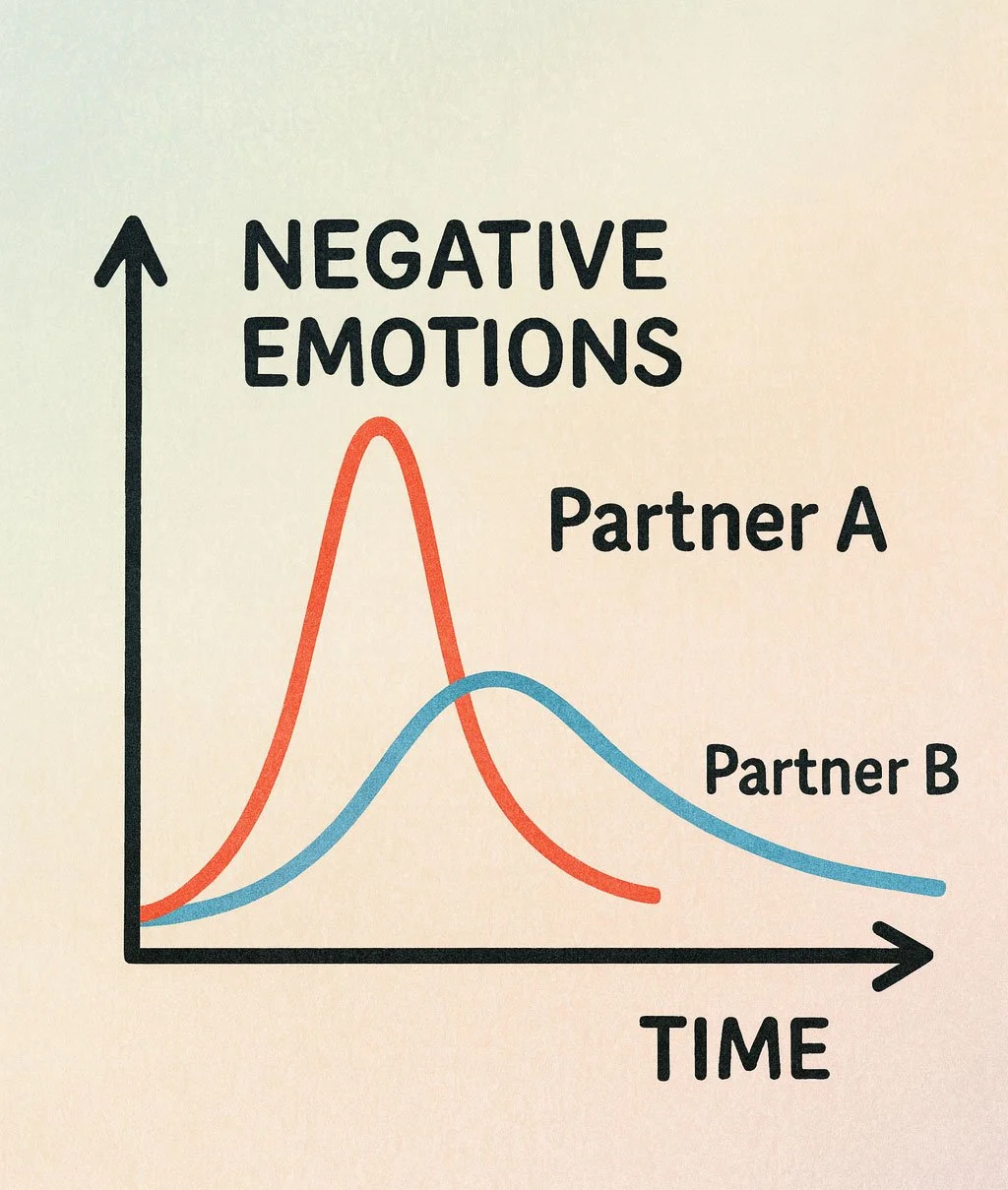Why Partners Recover from Arguments at Different Speeds
In my work with couples, one pattern that comes up again and again is how differently partners move through conflict. It’s not just what you argue about, but how you each recover afterwards.
Some people are like a match. They ignite quickly — frustration, anger, or hurt spikes in a matter of seconds. The moment can feel intense for both partners. But just as quickly as they flare up, they begin to settle. Ten or fifteen minutes later, they might feel ready to move on, wondering why their partner is still quiet or upset.
Others are more like slow-burning embers. It takes a lot for them to feel truly upset. They might stay calm while the other person is already raising their voice. But once they do tip into strong emotions, they stay there for a while. Their nervous system takes longer to return to baseline. They might need hours, or even a day or two, to feel truly at ease again.
These differences are natural, and often rooted in a combination of personality, attachment style, past experiences, and even biology. For example:
People with a more reactive stress response may have a nervous system that ramps up and cools down quickly.
Those with a slower, more sustained stress response may process emotions over a longer period, which can be influenced by early family patterns or trauma.
Why it can cause problems
When one partner recovers quickly and the other takes longer, misunderstandings are common:
The faster-recovering partner might think, “Why are you still upset? Can’t we just move on?”
The slower-recovering partner might think, “Why are you acting like nothing happened? I’m still hurting.”
If these assumptions aren’t spoken about, they can create resentment over time. The fast-recovering partner might feel punished for trying to reconnect, while the slower-recovering partner might feel pressured to speed up before they’re ready.
What you can do
Name your patterns
Talk about how each of you tends to respond. Use examples from recent disagreements and describe what’s going on internally for you.Respect the pace
If you’re quick to cool down, remember your partner’s slower recovery isn’t a choice to “stay mad” — it’s their nervous system doing its thing.Communicate during the cool-down
If you take longer to recover, let your partner know you’re not shutting them out — you just need time. A simple, “I’m still processing, but I’m here” can go a long way.Plan for reconnection
Agree on when to come back together after space — whether that’s 30 minutes, a few hours, or the next morning.
Further reading
Hold Me Tight – Dr Sue Johnson – understanding emotional responsiveness in couples
The Gottman Institute – Repairing After a Fight – tools for reconnecting after conflict
Final thought
There’s no “right” recovery speed. The key is learning each other’s rhythms, showing patience, and keeping the door open for connection. Arguments are inevitable, but the way you navigate them — and return to each other afterwards — is what truly shapes the health of your relationship.

